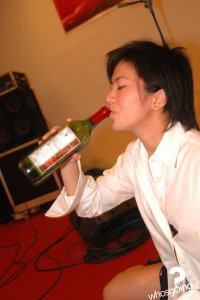WITH almost 6% of its vineyard converted to organic production Alsace can claim to be the greenest wine region of France.
Although the prediction made a few years ago by one top grower that 90% of Alsace’s vineyards would be organic by 2010 now seems wildly optimistic, the rate of conversion is steady and sustained. There are also a large and growing number of vignerons who, while stopping short of full organic status, claim to practice sustainable viticulture and only spray their vines with agrochemicals as a last resort.
Alsace also boasts an unusually large number of biodynamic grape growers, an extreme organic regime, based on the teaching of Rudolph Steiner, an Austrian thinker, who just before his death in 1925, suggested that every farm or vineyard is part of a living organism. All the work in the vineyard and winery is done with respect of the rhythms of the waxing and waning moon, stars and planets and most treatments are homeopathic or infusions of wild plants and herbs.
On the face of it Steiner’s claims seem absurd, but many of the wines made in biodynamic vineyards are spectacularly good. Biodynamic growers fall into two camps. Some fervently believe that Steiner’s view of the cosmos is true, others are agnostic, shrug their shoulders and admit that they have no idea why their biodynamic practices work.
Earlier this month I visited four Alsace wine-makers all of whom are passionate advocates of biodynamics. The wines they made include some of the greatest I’ve ever tasted from the region, but a few were very odd indeed.
Pierre Frick is one of the pioneers of biodynamic viticulture in France. He adopted it in 1981 and has helped many other growers to follow. Some of his wines can be bought from Leeds-based organic wine specialists Vinceremos (www.vinceremos.co.uk).
He is keen to reduce sulphur levels in his wines to zero (sulphur is normally added as an antioxidant and to kill unwanted bacteria). It’s a risky business, but the results were mostly impressive, with wines generally fruitier than usual if sometimes a little less aromatic. Not everyone enjoys his wines. He told me that his uncompromisingly dry, spicy Gewurztraminer 2005 was a huge hit with the Swiss who gave it a gold medal, but a complete flop in the eyes of his Parisian clients.
Clément Klur and his warmly welcoming wife Régine seem to have a lot of fun making their wine and are keen to know what visitors make of it (they even keep a chalk and blackboard for comments in their loo).
Their wines are much more consistently enjoyable than Frick’s, but perhaps don’t quite reach the heights of his best. They are recent converts – they changed to biodynamic in 2004, but believe their wines already seem better balanced with higher acidity than before. Monsieur Klur also claims biodynamic viticulture is the most effective way to cope with the extremes of weather seen over the last few years as a result of climate change.
Sylvie Spielmann went biodynamic in 2002. Most vineyard land is divided into tiny plots, but her eight hectares of vines surround her house and husband’s building yard. There’s far less chance of contamination from neighbours’ spray. Like many biodynamic wine makers she takes a minimalist approach to wine-making, letting it ferment and settle in its own time, but having worked in Champagne, Burgundy, Australia and California, she’s learned how to make vividly fruity wines, the most consistently impressive of all those I tasted.
Patrick Meyer’s wines are uncompromisingly different and he’s proud of it. Some of his wines, for example, are deliberately oxidised and won’t appeal to everyone. He claims the main advantage of being biodynamic is that he does less work. “I don’t like working in the cellar; it’s not necessary.”
He believes that biodynamics is not an exact science. “I hate dogmatism”, he says. He also claims to need more time to make his cheap wines than his great ones (of which there are an impressive number). And “the only good way to make Pinot Noir (his is unusually perfumed and elegant) is to do nothing. When you touch it, it’s too late,” he explains. A few years ago there were many people in the wine business who worried that with modern fermentation methods it wouldn’t be long before wines the world over tasted much the same.
Biodynamics, by whatever means it works, ensures that this can never be so and I, for one, am grateful.
Jane Hall
skip to main |
skip to sidebar
Enhance the pleasure that you get from wine by sharing your experiences, knowledge, news articles and facts about the elixir of the gods and bacchanalia on earth by emailing: bacchusforyou@bellsouth.net
How Much Did The Best Bottle of Wine You Ever Drank Cost?
CONTACT INFORMATION
TO SUBMIT A POST, TO BE PUT ON THE MAILING LIST, TO HAVE QUESTIONS ANSWERED, ETC.
EMAIL:



